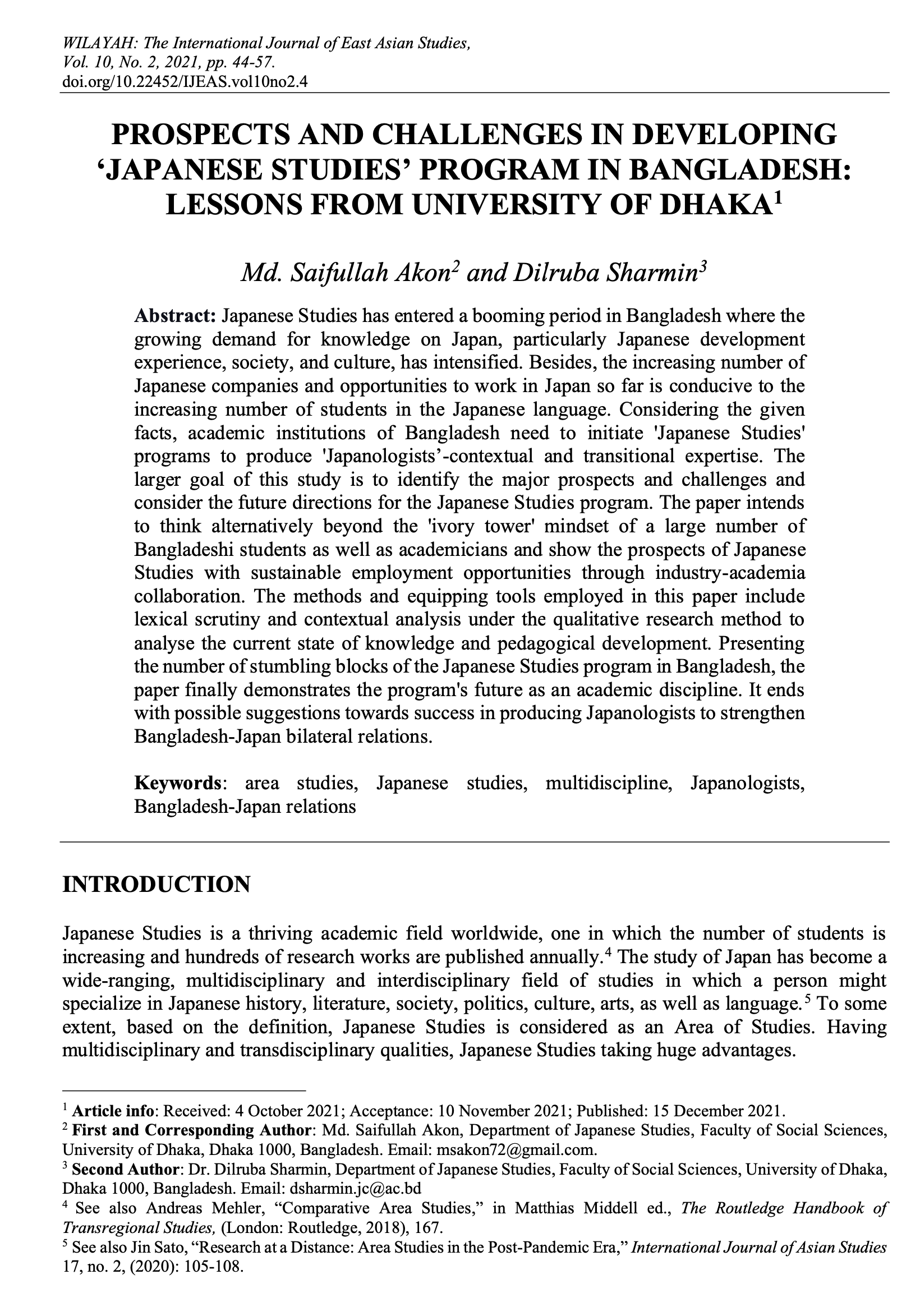Prospects and Challenges In Developing 'Japanese Studies' Program in Bangladesh: Lessons From the University of Dhaka
Main Article Content
Abstract
Abstract: Japanese Studies has entered a booming period in Bangladesh where the growing demand for knowledge on Japan, particularly Japanese development experience, society, and culture, has intensified. Besides, the increasing number of Japanese companies and opportunities to work in Japan so far is conducive to the increasing number of students in the Japanese language. Considering the given facts, academic institutions of Bangladesh need to initiate 'Japanese Studies' programs to produce 'Japanologists’-contextual and transitional expertise. The larger goal of this study is to identify the major prospects and challenges and consider the future directions for the Japanese Studies program. The paper intends to think alternatively beyond the 'ivory tower' mindset of a large number of Bangladeshi students as well as academicians and show the prospects of Japanese Studies with sustainable employment opportunities through industry-academia collaboration. The methods and equipping tools employed in this paper include lexical scrutiny and contextual analysis under the qualitative research method to analyse the current state of knowledge and pedagogical development. Presenting the number of stumbling blocks of the Japanese Studies program in Bangladesh, the paper finally demonstrates the program's future as an academic discipline. It ends with possible suggestions towards success in producing Japanologists to strengthen Bangladesh-Japan bilateral relations.
Downloads
Article Details

This work is licensed under a Creative Commons Attribution-NonCommercial 4.0 International License.
Copyright
Submission of a manuscript to the WILAYAH implies that the submitted work has not been published before (except as part of a thesis or report or abstract), that it is not under consideration for publication elsewhere; that all co-authors have approved its publication. The WILAYAH : International Journal of East Asian Studies adopts CC BY license. As such, we would be grateful if an acknowledgement accompanies the republication that the work was originally published in WILAYAH. The editors will ensure digital preservation of access to the journal content by the Journal depository section.
Disclaimer
Although the Department of East Asian Studies is the publisher of the WILAYAH : International Journal of East Asian Studies, the views presented in the WILAYAH are entirely those of the contributors and do not reflect the official stand of the Department of East Asian Studies. The Department does not hold itself responsible for the accuracy of any article published. Publisher and co-publishers assume no responsibility, nor by the editors for any injury and/or damage to persons or property as a result of any actual or alleged libellous statements, infringement of intellectual property or privacy rights, or products liability, whether resulting from negligence or otherwise, or from any use or operation of any ideas, instructions, procedures, products or methods contained in the material therein.

